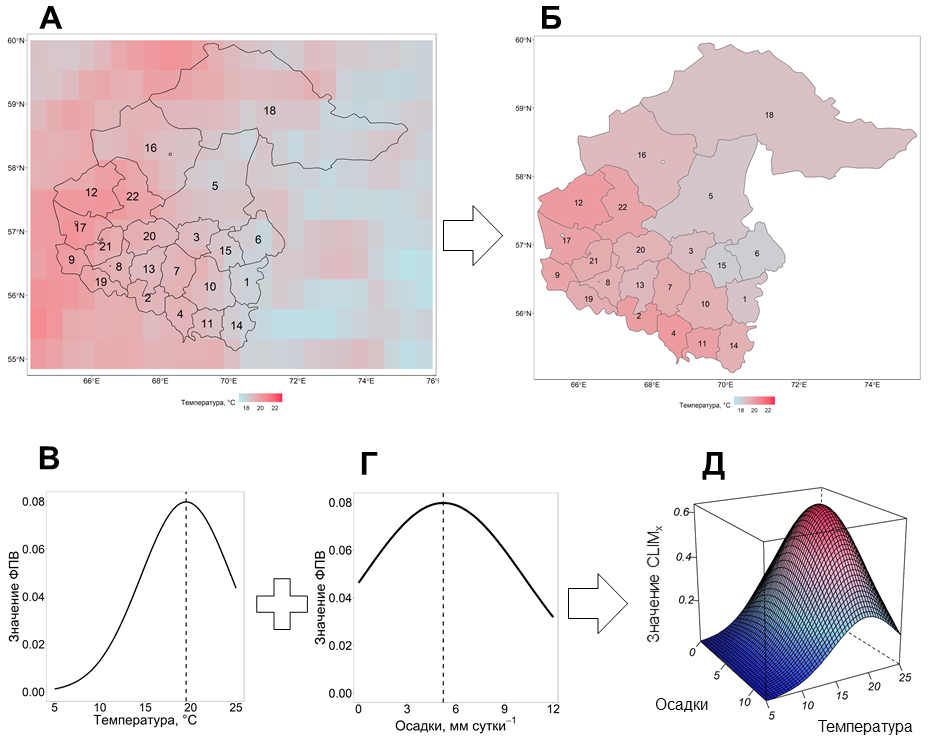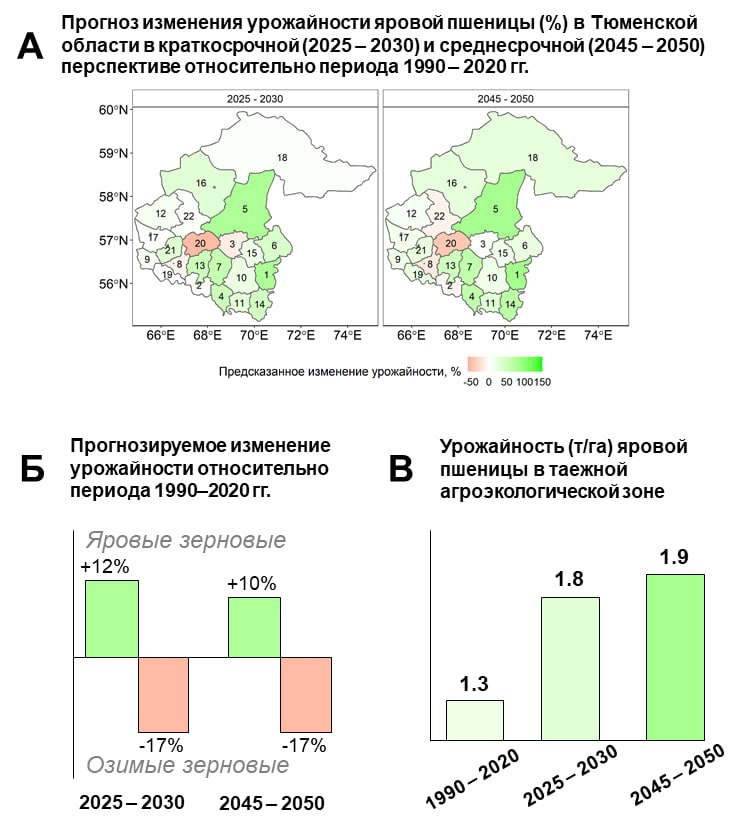
Employee of the Laboratory of Soil Zoology and General Entomology of the Institute of Soil Ecology RAS Ph.D. Goncharov A.A. together with colleagues from Tyumen State University (Institute of X-BIO), Federal State Budgetary Institution "Rosselkhoztsentr", Marchuk Institute of Computational Mathematics RAS and Emperor Peter I Voronezh State Agrarian University developed a mathematical model to assess the impact of climate change on grain yields in the Tyumen region in the short term (2025 - 2030) and medium term (2045 - 2050).
The study was carried out on the basis of combined data for the period from 1990 to 2020 on the yield of five grain crops (barley, oats, spring and winter wheat, winter rye) in the Tyumen region (provided by the Federal State Budgetary Institution Rosselkhoztsentr), as well as key meteorological parameters obtained using the global model CMIP6, developed within the framework of the Intergovernmental Panel on Climate Change (Fig. 1).
It is shown that in general in the Tyumen region in the short and medium term there will be an increase in agricultural yields. However, this will not happen evenly across the parts of the region, which will lead to a redistribution of the increase in yield across regions (Fig. 2). Under the most likely scenario of climate change in the Tyumen region, a significant decrease in the yield of winter rye is predicted in the medium term (by 2050). For spring wheat and spring oats, the selection of cold-resistant, early-ripening varieties adapted for cultivation in the taiga agro-ecological zone is justified.

The study was carried out with the financial support of the Russian Science Foundation, project No. 22-76-10027.
The work was published in the journal Field Crops Research (SJR Q1, IF = 5.224).
Anton A. Goncharov, Taras A. Safonov, Alexander M. Malko, Gennady A. Bocharov, Sergey V. Goncharov (2023). Climate change expected to increase yield of spring cereals and reduce yield of winter cereals in the Western Siberian grain belt. Field Crops Research, 302: 109038.
